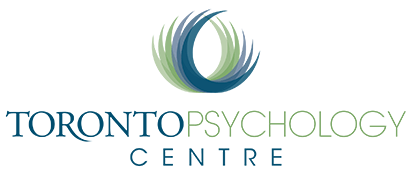Psychological Treatment for Addictions
Addictions are among the most difficult challenges faced by Canadians today. This may involve problematic use of alcohol, tobacco, marijuana or other drugs (including medications) or excessive involvement in gambling, sex and other addictive behaviours.
Addiction is common and affects everyone
Most individuals will have faced the consequences of addiction at some point in their lives, either through personal experience, family members, or friends. Toronto Psychology Centre is committed to using the most effective treatments based on scientific evidence, which include Cognitive Behaviour Therapy (including mindfulness therapy skills) and Motivational Interviewing.
Regaining control of your life
Our approach helps you regain control of your life through strengthening your commitment to change, enhancing your understanding of the problem, and teaching key skills and strategies that help you manage and change the behaviours that fuel the cycle of addiction.
Mindfulness skills are an important component of treatment and are particularly helpful in managing the urge to engage in the addictive behaviour. Remaining focused on your present moment experiences and observing in this way can help you see clearly through the urge to the feelings and needs that require attention and that were previously obscured or avoided through engaging in addictive behaviours.
Mindfulness practice and CBT strategies help to shift and facilitate a new perspective of the problem and provide lasting ways of coping that are specific to your needs in changing and managing powerful patterns of addiction.
Do I need treatment?
This is a common question. Many people try to cut down or stop on their own, and few are successful. Most will have gone through many quit attempts before seeking treatment.
The following questions can help determine if drug use or other behaviour is a problem and requires treatment:
- Have you found it hard to control the behaviour?
- Has the behaviour caused problems in your life? (e.g., At home, work, school, or in important relationships? Has it worsened depression, anxiety or caused other emotional problems?)
- Have you gotten into risky situations while engaging in the behaviour?
- Do you need to engage in the behaviour more in order to feel the desired effect? (Have you built a tolerance to it?)
- Do you experience withdrawal symptoms when you don’t engage in the behaviour for a while? If the answer to any of these questions is “Yes, ” talking to a psychologist can help.
How does psychological treatment for addictions work?
The treatment we offer is evidence-based, combining Cognitive Behavioural strategies (including mindfulness skills) along with Motivational Interviewing principles to strengthen commitment and ability to change.
Our treatment plans are:
- individualized, which means we tailor treatment to your unique needs
- collaborative, which means we work with you to set and reach your goals
- focused on harm reduction (helping reduce problems associated with the behaviour) and can lead to abstinence if desired
- able to incorporate a team-based approach with other healthcare providers if desired and appropriate
Treatment focuses on increasing understanding of the problematic behaviour, and working to develop key skills and strategies to manage the behaviour in a healthy way. We also offer support to ensure improvements are maintained and to prevent relapse in the long-term.
Is psychological treatment for addictions effective?
The essential components of treatment – Cognitive Behavioural Therapy and Motivational Interviewing – are “gold standard” approaches to psychological treatment for addiction. This means numerous research studies have demonstrated effectiveness when these approaches are used, and this holds true across many types of individuals with diverse backgrounds and varying degrees of substance use or other behavioural problems.
Please contact us to find out more about treatments for addictions.

